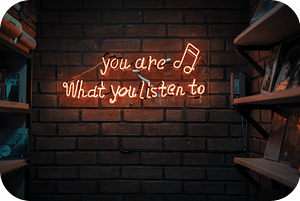‘Communication’ has a very broad definition. Depending on the purpose and context, it might serve a variety of functions. As a distribution device, it comes in a variety of configurations. Listening to music, watching videos, or reading a book are all options. Many people use art as a way to communicate and express their true selves. The artist expression can be transferred through many forms such as painting, drawing, and sculpting.
All forms of communication are worthy, and complicated. For this article, we will focus on you in the midst of a conversation with other people. We will leave you with a three tips that you can implement in your next convo. If you can come out of any read with 4 actionable steps, then I think the communication was a great success! Let’s see how we do!
Importance of communication skills
 It doesn’t matter whether you attend a workplace, go to school, or spend your time in your home or in front of your digital device, communication is a talent you need to have. Good communication skills are critical for professional and social success in any sector of life. We humans rely on our ability to communicate in order to put our ideas and feelings into words.
It doesn’t matter whether you attend a workplace, go to school, or spend your time in your home or in front of your digital device, communication is a talent you need to have. Good communication skills are critical for professional and social success in any sector of life. We humans rely on our ability to communicate in order to put our ideas and feelings into words.
Personal communication is a two-way exchange of messages that involves both sending and receiving. In order to properly collaborate with people and with one another, we need to have this competence.
Due to increasing globalisation and new technologies to accommodate and drive it, good communication skills have become increasingly crucial.
Since communication encompasses so many different areas of our lives and comes to us naturally, it’s difficult to think of it as a specific ability . However, communication has become a popular major at many universities, elevating the discipline from an art to a science. Thankfully, you don’t have to take a four-year university degree to improve your communication abilities. A foundational understanding as well as practise are required and everyone can improve their communication skillset.
Ways to express oneself
To begin, you must first recognise your feelings. As a further step, pinpoint exactly what happened to trigger these emotions in the first place. Finally, while interacting with another person, follow these steps: 1) Pay attention, 2) Reflect on what they said, and 3) Express your feelings about it.
Try This! Do not have a conversation when you are emotionally compromised. If possible, take the time to calm down and avoid over reacting and saying something you can’t take back. Words once spoke cannot be unspoken.
The importance of listening skills

Try this! Next time you’re talking to someone, repeat back what they say to improve your listening skills. At first, that might be a little unnerving for them. Explain to them that you’re simply making sure you got what they said if they appear perplexed. They will embrace the interaction after they get over their unease, and be pleased to see that you are taking their message seriously.
Tips for more effective communication

Try This! When speaking with others, keep in mind how they feel. The least efficient approach to get things done is to yell instructions at people, even if you’re the boss. Take into account the requirements and perspectives of all those involved.
Try This! Persuade your audience to stay active throughout the communication. Ask them direct questions about their opinions or thoughts if theyr are reticent in sharing. Being a stakeholder in a conversation lays the foundation for better buy-in to the summary of the exchange.
Conclusion
There is absolutely no way that a short article can tackle all skills of communication, but we did achieve sharing four strong tips for you to try today. We all understand that excellent communication has a huge payoff. When this happens, you’ll get more out of people than if you say nothing, or if you’re just barking orders at them like a drill instructor. Try those tips we shared, and you won’t be a silent post or a drill instructor in your next personal interaction!

